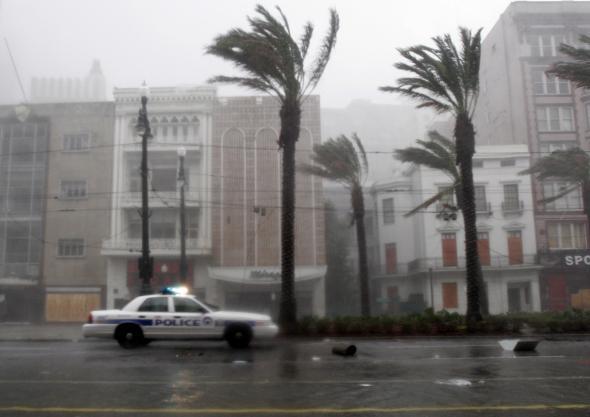The decadelong legal odyssey over a police shooting of six unarmed people in the chaotic aftermath of Hurricane Katrina appears to have finally come to a close Wednesday with five former officers pleading guilty to lesser charges as part of a plea deal. The officers killed two people during the 2005 shooting and then orchestrated an elaborate cover-up that included planting a gun. They pleaded guilty Wednesday to charges of conspiracy, obstruction of justice, and civil rights charges that will net them prison terms ranging from three to 12 years, a dramatic reduction from the decades they were originally sentenced to in a 2011 federal jury verdict that was subsequently thrown out because of prosecutor misconduct. Seven officers involved in the case were also indicted on state charges in 2007, but those, too, were thrown out because of misconduct, this time relating to the grand jury.
Here’s more on the events that took place on Danziger bridge from the New York Times:
The case began on Sept. 4, 2005, in a city still without order and drowning in floodwaters. Two groups of families and friends, all of them black, were crossing the Danziger bridge in search of food and relatives when police officers rushed to the scene in a Budget rental truck. The officers, responding to a distress call, opened fire with shotguns and AK-47s, sending those on the bridge, all of whom were unarmed, diving and running for cover. Four people were severely injured—one woman lost part of her arm—and two were killed: James Brisette, and Ronald Madison, a 40-year-old developmentally disabled man who took a shotgun blast in the back.
“Four of the former officers have been locked up for nearly six years while the fifth has been out on bond,” according to the Associated Press. “The plea deal calls for them to get credit for time served and they could be released from prison anywhere from the next one to six years.”
